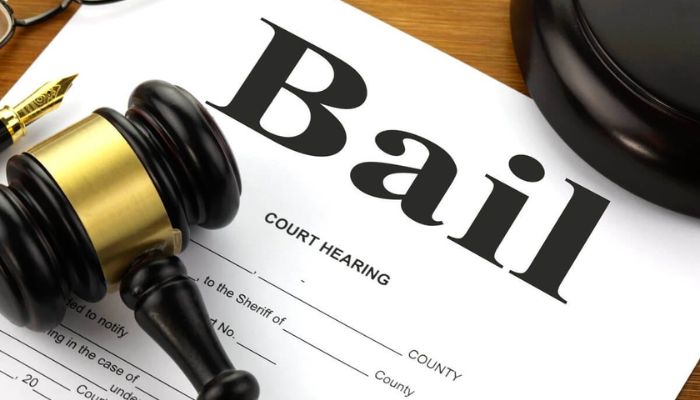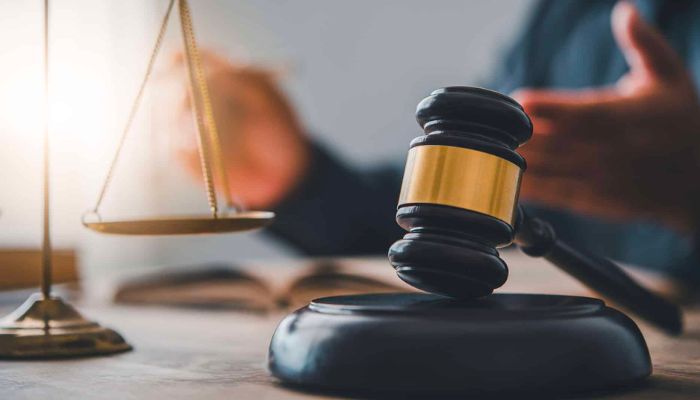
Assistance with Bail Applications and Hearings
Navigating the complexities of the legal system can be daunting, especially when it is criminal matters that involves bail applications and hearings. This critical aspect of criminal law matters requires a deep understanding of the legal process, the Bail Act, and the roles of various courts and legal entities. In this first part of our two-part series, we delve into the intricacies of bail applications, the factors influencing the court’s decision to grant bail, and the importance of obtaining immediate legal advice.
The Essence of Bail
Bail represents a fundamental component of the criminal justice system, allowing an accused person the opportunity to remain at liberty until their court date. The process involves a court hearing where the magistrate or judge assesses whether the accused should be released from custody under specific bail conditions. These conditions are designed to ensure the accused attends court and does not commit further offences while on bail.
The Bail Application Process
The bail application process begins immediately after an individual is charged with an offence. Depending on the severity of the alleged offence, the application can be made at a police station or may require a court hearing. Minor offences often see police officers granting bail directly from the station. However, more serious charges typically necessitate a formal bail application to be made in court, such as the Magistrates Court, Children’s Court, County Court, or even the Supreme Court, depending on jurisdiction and the nature of the criminal offence itself.
Legal Representation and Advice
Securing legal representation at the earliest stage is crucial. A lawyer specialising in criminal law matters can provide immediate legal advice, guide the accused through the bail application process, and advocate on their behalf during the court hearing. Legal advice is invaluable, as a knowledgeable lawyer can argue for bail by highlighting factors that mitigate the risk of the accused not complying with bail conditions or committing further offences in jail.

Factors Influencing Bail Decisions
Courts consider several factors when deciding whether to grant bail. These include the nature and seriousness of the alleged offence, the strength of the prosecution case, the accused’s criminal record, and the likelihood of the accused fleeing or posing an unacceptable risk to the community. In certain cases, the court must find exceptional circumstances before granting bail, especially for severe offences.
Bail Conditions
If the court decides to grant bail, it will impose bail conditions tailored to the accused’s circumstances and the nature of the offence. These conditions might include residing at a particular address, reporting regularly to a former police officer or station, and avoiding contact with specific individuals. Breaching these bail conditions can lead to arrest and potentially being remanded in custody until the court date.
The Role of Bail Hearings
Bail hearings are a critical stage in the bail application process, providing a platform for both the defence and the prosecution to present their arguments. The defence may argue that the accused poses no flight risk or danger to the community, while the prosecution may contend that keeping the accused in custody is necessary to ensure their appearance at court or to protect the public.
Consequences of Breaching Bail Conditions
Breaching bail conditions is a serious offence that can lead to immediate arrest and further legal complications. When an accused person fails to comply with the set conditions—whether by committing further offences, failing to report to the police station, or not attending court as required—the court may issue a warrant for their arrest, leading to potential remand in custody until the court date. This not only complicates the original bail matters but also adds a layer of difficulty in securing bail in the future, as it impacts the accused person applying one’s credibility and trustworthiness in the eyes of the court.
The Impact of Bail Decisions
The court’s decision to grant or refuse bail has profound implications not only for the accused but also for their families and communities. Being granted bail allows the accused to continue their daily lives, work, and prepare their defence while awaiting trial. Conversely, being refused bail and placed in custody can lead to job loss, financial strain, and emotional distress for both the accused and their loved ones. The stakes are particularly high in cases involving the Children’s Court, where the future of young offenders hangs in the balance, emphasising the need for specialised legal advice and support.

Legal Representation and Bail Variations
Legal representation plays a pivotal role throughout the bail process in criminal cases, including seeking variations to bail conditions if circumstances change. A skilled lawyer can make a further application for bail, arguing for more favourable conditions or for bail to be granted if it was initially refused, provided there are new facts or circumstances to present to the court. This aspect of bail matters underscores the dynamic nature of legal proceedings and the importance of having an adept legal advocate who can navigate these changes effectively.
Support Systems and Legal Advice
For those facing criminal charges and the complexities of bail applications, the support system extends beyond legal representation. Various community organizations and legal aid services offer assistance obtain advice and guidance to individuals and families navigating these challenging times. Obtaining advice from these sources can provide a sense of direction and relief amidst the legal turmoil.
Moreover, the role of a bail justice or a bail support program can be instrumental in certain jurisdictions, offering an additional layer of support and oversight to ensure compliance with bail conditions and to assist accused persons in attending court and adhering to the terms of bail undertaking upon their release.
Exceptional Circumstances and Bail
In cases where bail is difficult to obtain due to the nature of the offence or the accused’s history, the concept of “exceptional circumstances” comes into play. Demonstrating exceptional circumstances requires a thorough understanding of the law and the ability to have sufficient evidence to present a compelling case to the court. This is where experienced legal professionals can make a significant difference, crafting arguments that highlight the unique factors that justify granting bail under stringent conditions.
Conclusion
The journey through bail applications and hearings is fraught with legal and emotional challenges. From understanding the bail application process to dealing with the consequences of bail decisions and breaches of bail condition, the importance of experienced legal representation cannot be overstated. As we conclude this two-part series, it’s clear that navigating the complexities of bail matters requires not only a deep understanding of the law but also a comprehensive support system to guide accused persons and their families through these turbulent times.
Whether facing a bail hearing in a local court, the Magistrates Court, County Court, or Supreme Court, the right legal advice and support can pave the way for a more favourable outcome, emphasising the critical role of legal professionals in the realm of criminal law matters.
This article is of a general nature and is intended for information only. It should not be relied upon as legal advice. If you require further information, advice or assistance for your specific circumstance, please contact us at Bouchier Khan Lawyers.
